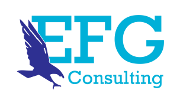Sharjah launched its bid for an increase of 30 per cent in foreign direct investment on Wednesday.
Home to a third of the UAE’s manufacturing capacity, with GDP growing by 8 per cent in 2015, the emirate is looking to show off its unique logistical pre-eminence in the UAE with ports sitting on both coasts. It believes its maritime expertise, coupled with its international airport and a growing population of 1.2 million means it has many attractions to FDI.
“We have focused and specific targets,” said Mohammed Juma Al Musharrakh, the deputy director of Sharjah FDI at Shurooq said at the Sharjah FDI Forum on Wednesday. “We are targeting the UK after its Brexit decision along with India, the US and China. The sectors we are focused on are tourism, renewable energy, health care and logistics. We have the Government of Sharjah behind the new initiative with a new free zone, the only one in the UAE just for publishing.”
He declined to say when Sharjah’s domestic infrastructure may be able to cope with the chronic traffic problems encountered on a daily basis by many of the emirate’s residents.
One sector that has already experienced an increase in FDI is tourism, where fresh from its acquisition by Marriott International, Starwood Hotels and Resorts has two new hotels opening in Sharjah in the next two years.
It currently has a 350-room Sheraton Beach resort in operation, opened last year, and will add a further 220 rooms in a four-star hotel and 270 rooms in an upscale three-star hotel.
“We believe with the expansion of Air Arabia and the need for conservative stays, Sharjah has opportunity” said Neil George, the senior vice president, acquisitions and development, Starwood Hotels and Resorts. “There are a lot of conservative travellers in the region and Sharjah is ideally placed to serve them.”
Some of the investment is also being funnelled into the eduction system. Global Schools Foundation from Singapore will open five schools in Sharjah over the next eight years. It has the opportunity to offer mid-segment schools following UK, Indian and IB curricula, catering to the huge domestic demand.
“The residents here need affordable schools and we are able to offer that,” said Atul Temurnikar, the chairman and co-founder of Global Schools Foundation. “Sharjah offers us economies of scale, not possible in Dubai.
“We intend to open five schools catering to 15,000 students, which allows a business case for us, an affordable fee structure and good teaching staff. There are 186,000 students in Sharjah and the population is growing, so good schools are needed.”
However, the UAE needs to bring in its investment law as soon as possible to boost foreign direct investment, according to a leading economist.
Speaking at the forum on Wednesday, Nasser Saidi, the founder and president of Nasser Saidi & Associates and former chief economist at the DIFC Authority, said the likelihood of oil prices hovering around US$50 per barrel for the near future meant budget surpluses are turning into budget deficits and diversification needs to happen faster.
The Ministry of Economy has stated that the investment law will allow 100 per cent ownership in some sectors outside free zones.
A first draft of the law has been approved by a Ministry of Justice committee, and the Cabinet. It is being redrafted by the Ministry of Justice before it is sent to the Federal National Council and the Cabinet for approval.
Mr Saidi also said that the UAE needs to look at its visa regulations for certain nationalities, referring to Iraq, Syria and Lebanon, to ensure the best and cleverest stay in the Middle East.
“They need easier access to the UAE because these intelligent people go to the US and Europe and the region loses.”
He added that with Saudi Arabia’s new plans to diversify and open up its economy, this has put increased pressure on all the Arabian Gulf states to act quickly and resolutely.
FONT: THE NATIONAL

